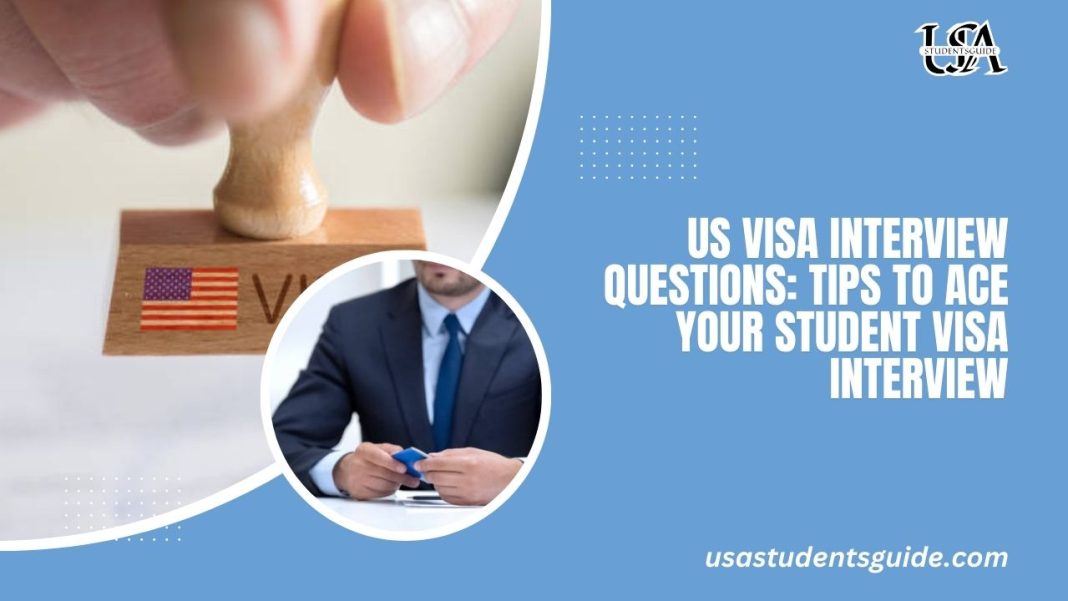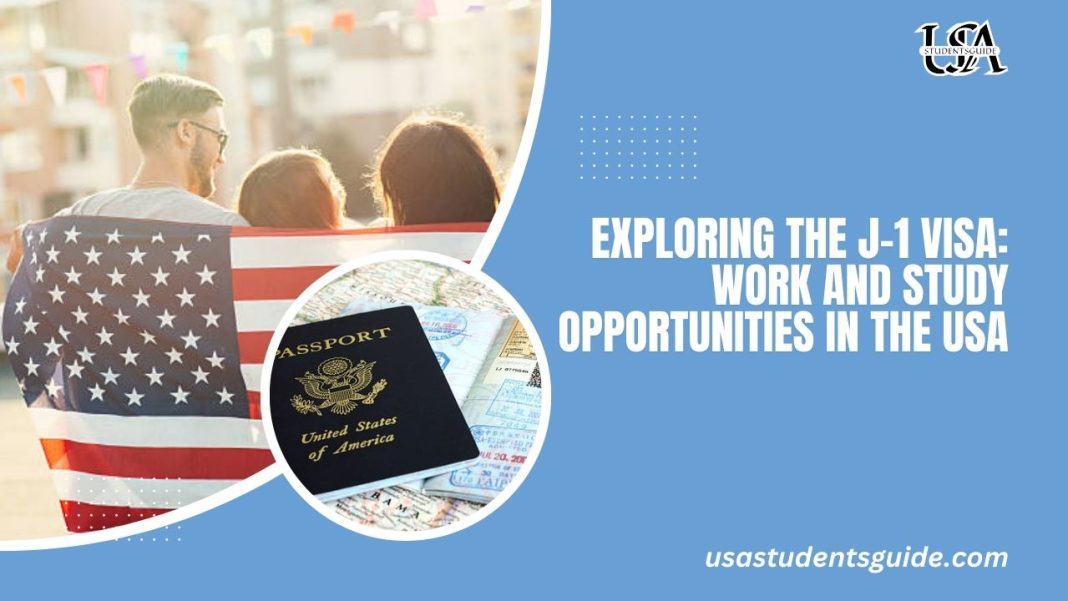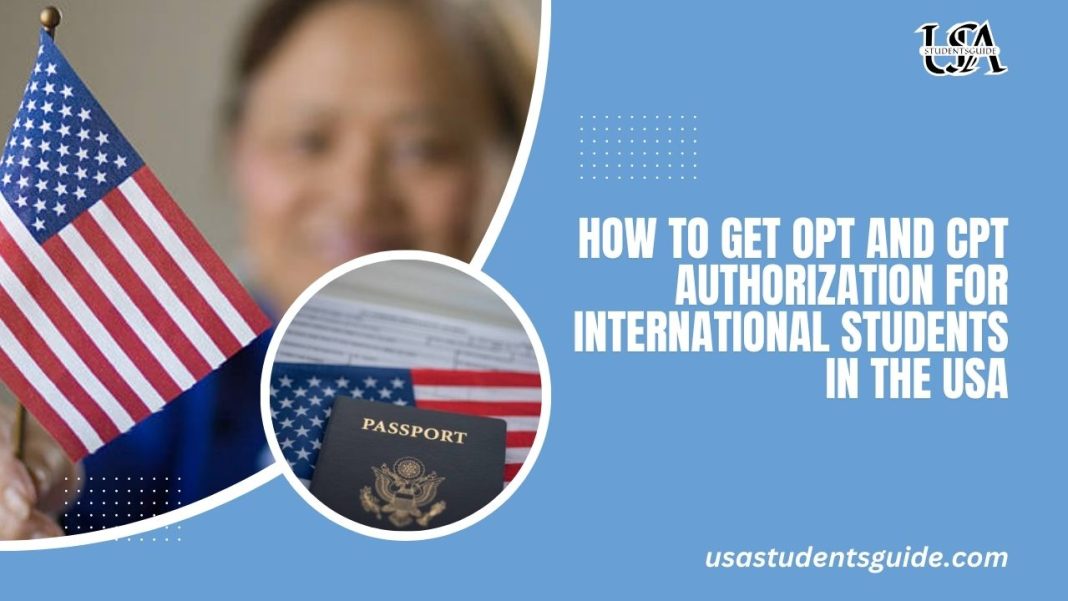Introduction
US Visa Interview Questions: Tips to Ace Your Student Visa Interview – The U.S. student visa interview is one of the most crucial steps in the visa application process for international students. The outcome of this interview determines whether you’ll receive the F-1 visa and fulfill your dream of studying in the USA. While the interview may seem intimidating, being well-prepared can significantly increase your chances of success. This guide will walk you through the most common U.S. visa interview questions, provide expert tips on how to answer them, and offer insights to help you ace your student visa interview.
1. Understanding the Purpose of the Visa Interview
The visa interview is designed to evaluate whether you meet the requirements for a U.S. student visa. During the interview, the consular officer will assess your intentions to study, your financial stability, and your plans after graduation. The goal is to confirm that you are a genuine student with the primary purpose of studying in the USA and that you have the means to support yourself during your stay.
Key Aspects the Officer Will Evaluate:
- Intent to Study: Your genuine intention to pursue an academic program in the USA.
- Financial Capability: Proof that you can afford your education and living expenses without needing unauthorized work.
- Ties to Your Home Country: Evidence that you intend to return home after completing your studies.
2. Common U.S. Student Visa Interview Questions and How to Answer Them
Knowing what to expect can help you prepare your answers and build confidence. Below are some of the most frequently asked questions during the student visa interview, along with tips on how to respond effectively.
Question 1: Why do you want to study in the USA?
How to Answer: Highlight the unique aspects of the U.S. education system, such as its world-renowned universities, research opportunities, and diverse learning environment. Explain why studying in the USA is essential for achieving your academic and career goals.
Sample Answer:
“I chose to study in the USA because it offers some of the best programs in my field of study—computer science. The advanced research facilities, experienced faculty, and exposure to a diverse student body will provide me with the skills and knowledge necessary to excel in my career.”
Question 2: Why did you choose this particular university?
How to Answer: Be specific about the factors that influenced your decision, such as the program’s reputation, faculty expertise, campus facilities, or the university’s location. Show that you’ve done thorough research and have a clear understanding of why this school is the best fit for you.
Sample Answer:
“I chose XYZ University because it has a highly ranked engineering program and offers specialized courses that align with my interest in renewable energy. I was also impressed by the university’s commitment to sustainability and the opportunity to work on projects with industry professionals.”
Question 3: How are you funding your education?
How to Answer: Be prepared to provide detailed information about your financial plan, including personal savings, family support, scholarships, or educational loans. Make sure your financial documents match the information you present.
Sample Answer:
“My parents are sponsoring my education, and we have saved $50,000 in a dedicated education fund. Additionally, I have been awarded a $10,000 scholarship from the university, which will help cover my tuition and living expenses.”
Question 4: Do you have relatives in the USA?
How to Answer: Answer truthfully. If you have relatives, state their relationship to you and their visa status. The key is to assure the officer that your intent is to study and that having family in the U.S. won’t deter you from returning to your home country after completing your studies.
Sample Answer:
“Yes, my aunt lives in New York and is a permanent resident. However, my primary reason for coming to the USA is to pursue my studies, and I plan to return home after completing my degree.”
Question 5: What are your plans after graduation?
How to Answer: Focus on your long-term career goals and how your U.S. education will help you achieve them. Emphasize your intent to return to your home country and contribute to your field with the skills you’ve gained.
Sample Answer:
“After graduation, I plan to return to India and work in a leading technology firm. My goal is to use the knowledge I gain from my studies in the USA to help develop sustainable energy solutions in my country.”
Question 6: What will you do if your visa is rejected?
How to Answer: Show that you have a positive attitude and a backup plan. Express your commitment to pursuing your academic goals, whether it’s reapplying or considering other study options.
Sample Answer:
“If my visa is rejected, I will re-evaluate my application, address any issues raised, and reapply. I am determined to pursue my education, and I will take the necessary steps to ensure my application is as strong as possible.”
3. Essential Tips to Ace Your Student Visa Interview
Here are some tips to help you prepare and perform well during your student visa interview:
1. Be Honest and Consistent
Consistency is key when answering interview questions. Ensure that your answers match the information provided in your DS-160 form, I-20, and financial documents. Honesty is crucial—any discrepancies can lead to visa denial.
2. Dress Professionally and Arrive Early
First impressions matter. Dress formally as you would for a job interview, and plan to arrive at the embassy or consulate at least 15 minutes before your scheduled appointment time.
3. Bring All Required Documents
Prepare a folder with all necessary documents, including:
- Passport (valid for at least six months beyond your intended stay)
- Form I-20 (Certificate of Eligibility for Nonimmigrant Student Status)
- DS-160 confirmation page
- SEVIS fee payment receipt
- Financial documents (bank statements, sponsor letters, scholarship letters)
- Academic transcripts and standardized test scores (e.g., TOEFL, IELTS, GRE, SAT)
4. Practice Common Questions
Rehearse answers to common interview questions with a friend or mentor. Practicing aloud can help you articulate your thoughts clearly and reduce anxiety.
5. Stay Calm and Confident
Maintain eye contact, smile, and keep your responses concise. It’s natural to feel nervous, but staying calm and composed will help you communicate more effectively.
6. Be Prepared to Justify Your Finances
Financial capability is one of the key factors consular officers assess. Be ready to explain your financial plan in detail, including sources of funds and any sponsorship arrangements.
7. Highlight Your Intent to Return Home
Emphasize your ties to your home country, such as family, property, or job prospects. The officer needs assurance that you do not intend to overstay your visa after completing your studies.
4. Common Mistakes to Avoid During the Interview
Avoid these common pitfalls that can negatively impact your visa interview:
- Giving Vague or Contradictory Answers: Be clear, specific, and consistent in your responses. Avoid giving conflicting information.
- Appearing Unprepared: Lack of preparation can make you seem less credible. Review your application, practice your answers, and familiarize yourself with your university’s details.
- Overemphasizing Post-Study Work in the USA: Focus on your academic goals and how they align with returning to your home country. Expressing a strong desire to stay in the USA indefinitely can raise red flags.
- Failing to Explain Financial Support Clearly: Ensure you understand your financial documents and can explain how your education will be funded.
Final Thoughts
The U.S. student visa interview is a critical part of the F-1 visa application process, but with proper preparation and a confident approach, you can increase your chances of success. Focus on presenting yourself as a genuine student with clear academic goals, strong ties to your home country, and a well-thought-out financial plan.
Ready to ace your student visa interview? Review these questions, practice your answers, and approach your interview with confidence. Your journey to studying in the USA is just one successful interview away!



